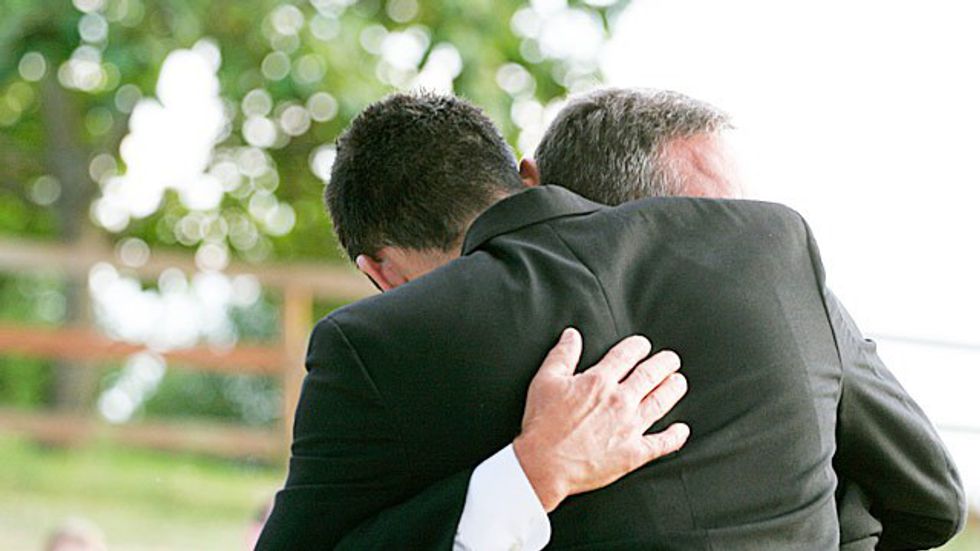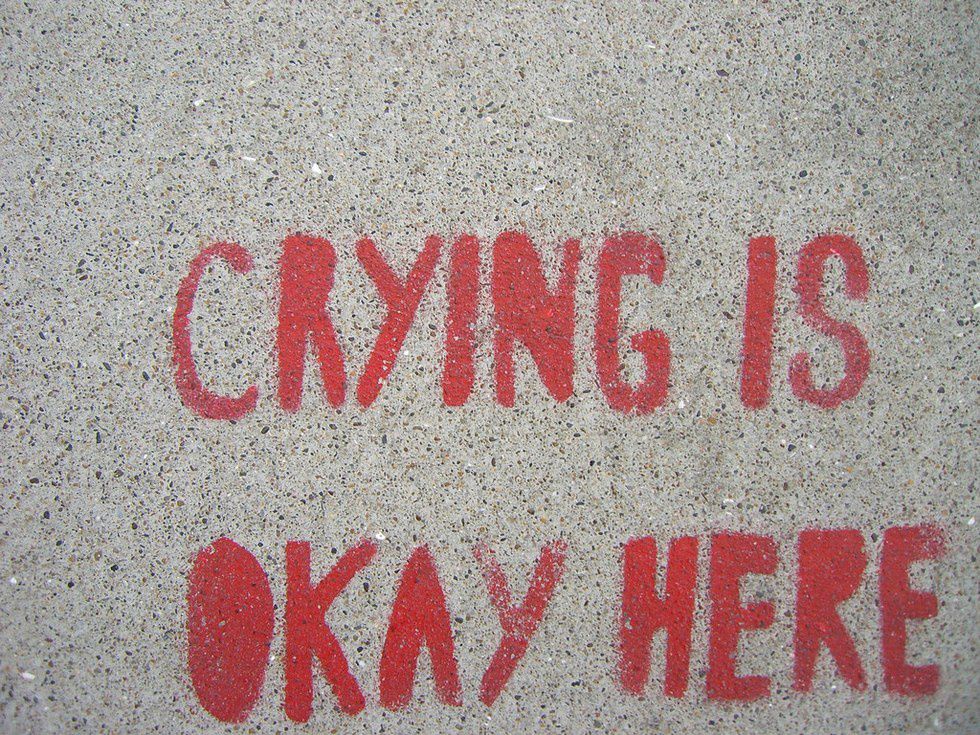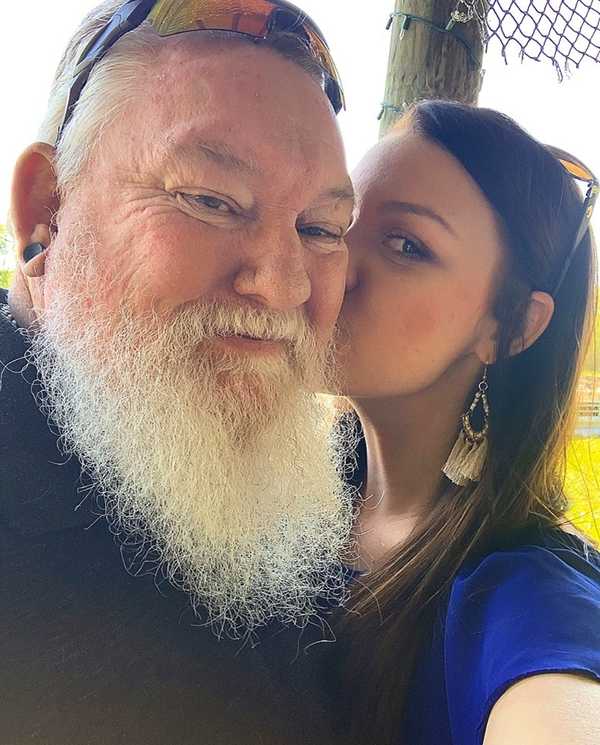The death of my father is the most traumatic event my family and I have ever experienced. It is a pain I wouldn’t wish upon my worst enemy. Nearly four years later, I still mourn my loss. Yet, the feelings surrounding it have changed. Times of grief are no longer overwhelmed by pain or sadness as they are feelings connected to the memory of my father and to myself. Life without him has become a new normal -- a normal that is OK, but nonetheless missing a piece.
I read articles by fellow writers and attend grief group meetings with other college students who have lost a loved one too young. To feel overwhelmed and isolated, especially early on in the grieving experience, is all too normal. However, I’ve found that through talking with others who have experienced loss, I am not alone. None of us are truly as alone as we feel, and it is through communicating our grief with each other that we find growth and companionship throughout the lifelong experience that is mourning loss. Not everyone understands, but anyone who has experienced the death of someone they love will empathize.
1. Grieving isn’t a process, it’s an experience.

Grief is an almost entirely personal, slightly collective, but nonetheless lifelong experience. It is an experience that forces growth and wisdom onto a person who would never wish to grow through such circumstances; but, inevitably, we all will.
2. Your lost loved ones move from your head to your heart.

As time goes by, the sadness or crying becomes less frequent. But, when it happens, it actually feels good. In my own experience, it’s gotten to the point that I do not cry over my father often. I speak of him in high regards and remember our memories together as fondly and vividly as ever. However, on the occasions that I do find myself in a particularly emotional state because I miss him, it feels really good. Whether it happens a few days in a row, or for the first time in several months, feeling emotionally connected to my grief makes me feel personally connected to him.
Sometimes, you just need a good cry. Letting it happen does feel good. It doesn’t necessarily mean you are sad, it just means you are allowing yourself to feel. At first, grief is emotion, and as you experience it, it becomes a feeling.
3. Always be patient and forgive.

Holding onto hate brings both unwanted and unnecessary stress into a life that you’ve learned is too short for such negativity. You never know when you can lose someone, or when that person can lose you. Always be kind, courteous, and forgiving.
4. Not everything has to happen for a reason.

5. Time and relationships are the most precious and interconnected facets of life.

Our relationships with others, and the time we spend investing in those relationships, is never wasted. It is our relationships with other people that bring the most genuine joy in life -- more joy than the biggest house, fanciest car, or newest technology ever could. You can never get back your time, and you can never get back people. Those are the real investments, and they are the most worth investing in.
6. Not everyone understands, and that’s OK.
Even years following my loss, I am hesitant to bring up my father in conversation with people who don’t know what it’s like to have such a big presence in their everyday life die. Not because I don’t want to talk about it, but because I think they don’t want to talk about it. This is a common and ironic misconception.
People tend to think it’s the person who is grieving that doesn’t want to talk about the person they lost. But, really, the only reason we may not want to talk about it is because others are uncomfortable to listen and respond to such a touchy subject matter. It’s a vicious cycle, really.
As nobody can truly understand grief and loss until they’ve experienced it for themselves, not everyone can be expected to know what to say when talking about death. It’s one of the hardest traumas to empathize with, as it’s a feeling only those familiar with it can understand. Not everyone is going to know what to say, but everyone knows how to listen.
Listening is a core factor in empathy, a human quality that anyone and everyone is capable of. While not everyone around us can understand our loss, that doesn’t mean they don’t care. An open ear and shoulder to cry on are the most appreciated forms of empathy and support, even without speaking a single word.
7. It feels good to talk about it.

As time continues to move forward, it actually feels really good to talk about the person we are missing so much. I, personally, always appreciate when a friend, family member, or my boyfriend asks me how I have been doing regarding the loss of my father, especially years later when it seems everyone else has forgotten. I love being asked so that I don’t have to bring it up myself, but I still have the opportunity to express any thoughts or feelings I may have about the matter.
After all, they say a person dies twice: once when they stop breathing and a second time, a bit later on, when somebody says their name for the last time. By speaking of them and remembering, you are, in a sense, keeping the person alive in your life and the lives of everyone around you. And that feels really good.
8. Their legacy is immortal.

In short, those you lose live on through you as you embrace all the qualities that you loved about them, and continue to bring them into the world yourself. The attributes of them that made you happy can continue to make others happy as those attributes become your own. In this sense, the person who died has become immortal, but through you.
Sometimes leaving a legacy means something as small as leaving a positive impact on the life of someone else.
9. It doesn’t go away, but it does get better.

Life goes on, but with a new normal. Emotions of sadness and despair will surely move to feelings of love and memory. You will never forget the person you lost and the impact they had (and continue to have) on your life. You will remember them in every achievement you make and life milestone you hit. The grief will always be there, but that means they will always be with you, too.
10. Even death, being the ugliest part of life, can induce a beautiful growth.
A quote from a book by John Green reads, “grief doesn’t change you, it reveals you.” The losses you experience in life become a core part of your identity and the person you grow to be, especially when you lose someone you love at a young age. But it is not the loss that created the person you are. By exhibiting both the strength and vulnerability it takes to experience grief, you discover what you are really capable of. Your identity manifests itself, just as it will with any experience in life, happy or sad.
My experience with grief has not been pretty. For years I struggled, and for years I will continue to struggle. But I am immensely proud of the courage, wisdom, and grace I’ve discovered in myself and my family through experiencing our loss together. While I miss my dad every day and will forever wish he was still an active presence in my life, I am grateful that I have grown from this loss in all the ways I have. I am proud of the person I have become, and I am sure that he would be as well.In Loving Memory of Russell Barney
January 28, 1963 - October 3, 2012
























